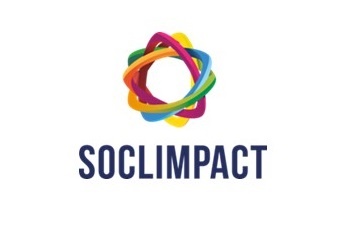Summary:
The warming of the climate system is unequivocal and continued emission of greenhouse gases will cause further warming and changes. Islands are particularly vulnerable to Climate Change (CC) consequences but the coarse spatial resolution of available projections makes it difficult to derive valid statements for islands. Moreover, science-based information about the economic impacts of CC in marine and maritime sectors is scarce, and current economic models lack of solid non-market assesment. Policy makers must have accurate information about likely impact chains and about the costs and benefits of possible strategies to implement efficient measures. SOCLIMPACT aims at modelling downscaled CC effects and their socioeconomic impacts in European islands for 2030–2100, in the context of the EU Blue Economy sectors, and assess corresponding decarbonisation and adaptation pathways, complementing current available projections for Europe, and nourishing actual economic models with non-market assessment, by:
• Developing a thorough understanding on how CC will impact the EU islands located in different regions of the world.
• Contributing to the improvement of the economic valuation of climate impacts by adopting revealed and stated preference methods.
• Increasing the effectiveness of the economic modelling of climate impact chains, through the implementation of an integrated methodological framework (GINFORS, GEM-E3 and non-market indicators).
• Facilitating climate-related policy decision making for Blue Growth, by ranking and mapping the more appropriate mitigation and adaptation strategies.
• Delivering accurate information to policy makers, practitioners and other relevant stakeholders.
SOCLIMPACT addresses completely this Work Programme providing advances in the economic valuation of climate-induced impacts, and in climate and economic models, allowing downscaled projections of complex impact chains, and facilitating the resilience capacity of these vulnerable lands.
Funding Institution:
European Comission.
Partners:
UNIVERSIDAD DE LAS PALMAS DE GRAN CANARIA (Coordinator); INSTITUTO TECNOLOGICO DE CANARIAS S.A.: UNIVERSITAT DE LES ILLES BALEARS; CENTRO TECNOLOGICO DE CIENCIAS MARINAS; UNIVERSIDAD DE CASTILLA LA MANCHA; INSTITUTE OF ECONOMIC STRUCTURES RESEARCH; TOURISME TERRITOIRES TRANSPORTS ENVIRONNEMENT CONSEIL; AGENCIA REGIONAL DA ENERGIA E AMBIENTE DA REGIAO AUTONOMA DA MADEIRA; CYPRUS INTITUTE: THE ENERGY, ENVIRONMENT & WATER RESEARCH CENTRE; NATIONAL OBSERVATORY OF ATHENS; OSSERVATORIO SUL TURISMO DELLE ISOLE EUROPEE; ANCI SARDINIA; AQUABIOTECH; UNIVERSITA TA MALTA; INTERFUSION; BUCKINGHAMSHIRE NEW UNIVERSITY; AGENZIA NAZIONALE PER LE NUOVE TECNOLOGIE, L'ENERGIA E LO SVILUPPO; ECONOMICO SOSTENIBILE; UNIVERSITÉ DES ANTILLES; E3-MODELLING IKE; BALTIC ENVIRONMENTAL FORUM; ALMA MATER STUDIORUM – UNIVERSITÀ DI BOLOGNA; FONDAZIONE CENTRO EURO-MEDITERRANEO SUI CAMBIAMENTI CLIMATICI; FCiências.ID; GOETHE UNIVERSITY OF FRANKFURT; REGION OF CRETE.

